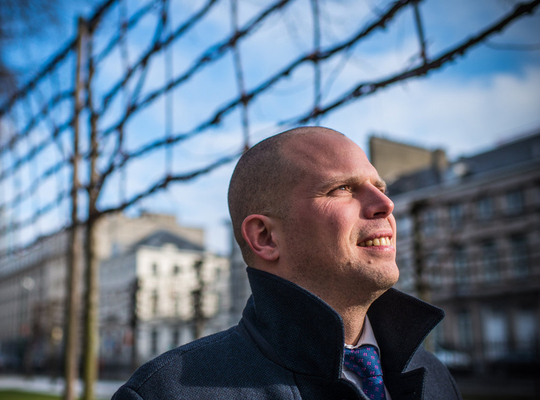You are here
Over 10,000 people sent back in 2015

In 2015, a total of 10,081 people were taken back to their country of origin. That represents an increase of 15.5% compared to 2014, when 8,727 people returned. Those repatriations were both forced, via the closed centres, and voluntary, with the assistance of the Belgian Government. “Voluntary return remains our primary aim,” Secretary of State for Asylum and Migration Theo Francken states. However, that does not detract from the fact that forced returns increased last year, and never before have so many criminals been sent back: a total of 1,437, which represents an increase of no less than 130% compared to 2014.
“Today, one in three people who is forced to return is a serious criminal from jail,” Theo Francken specifies. “That used to be different. Under Secretary of State Wathelet (cdH), prisoners were regularised, now they are repatriated. It is a question of priorities.”
Strong results despite diminished capacity
In 2015, 5,894 people were forced to return: that is an increase of about 16% compared to 2014. This increase is mainly thanks to the number of repatriations of people who are illegal residents, which increased by 20%. “It is a great success,” says Theo Francken, “because due to infrastructure works, our capacity was on average diminished by 4% in the closed centres. In other words, we succeeded in doing a lot more with fewer resources. That gives good hopes for 2016, since the capacity in closed centres is increasing from 528 to 610 in July. That should enable us to repatriate another 1,000 people. Is that enough? No. Therefore I fully support the request of the Director General of the Immigration Office to work towards integral doubling of our capacity.”
Voluntary return also on the increase
After three years of decline, 2015 also saw an increase in voluntary return. A total of 4,187 foreigners returned voluntarily with the assistance of the government, which represents an increase of 14%. “This increase is the fruit of intensive cooperation between the Immigration Service, Fedasil and local authorities,” Theo Francken explains. “The possibility of voluntary return is now being recommended as from the beginning of the asylum procedure. Our services have also been made more accessible with the opening of regional return desks in Antwerp, Ghent and Liège.”

